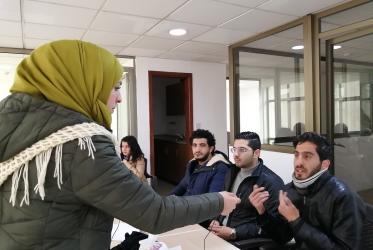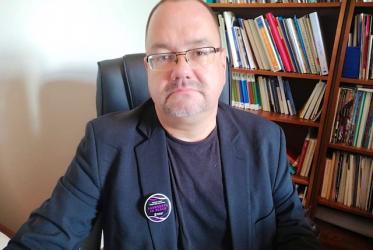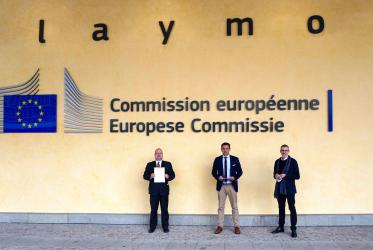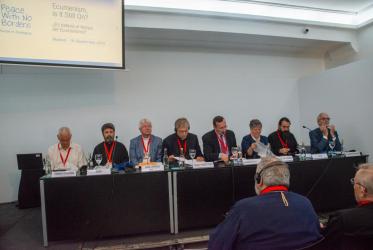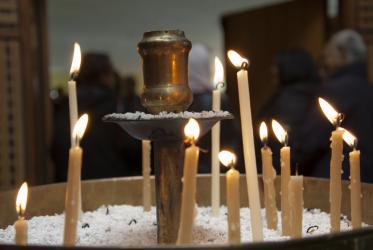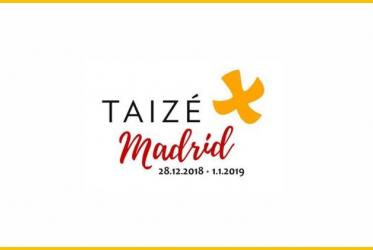Displaying 1 - 20 of 44
Are migrants seen and heard? Conference presses the question
19 October 2020
Ecumenical statement on migration received by European Commission
25 September 2020
The cry of the Papuans in Indonesia
14 November 2019
Human fraternity is a divine calling, says WCC general secretary
03 February 2019
WCC sends greetings as Taize youth reflect on hospitality
27 December 2018
WCC president for Europe: “Develop local dialogue”
22 October 2018
Rev. Kenneth Mtata reflects on journey of transition in Zimbabwe
20 September 2018
Catholics, WCC map future together after papal visit to Geneva
05 September 2018
Being Church in Europe Today: Migration through a theological lens
14 December 2016



